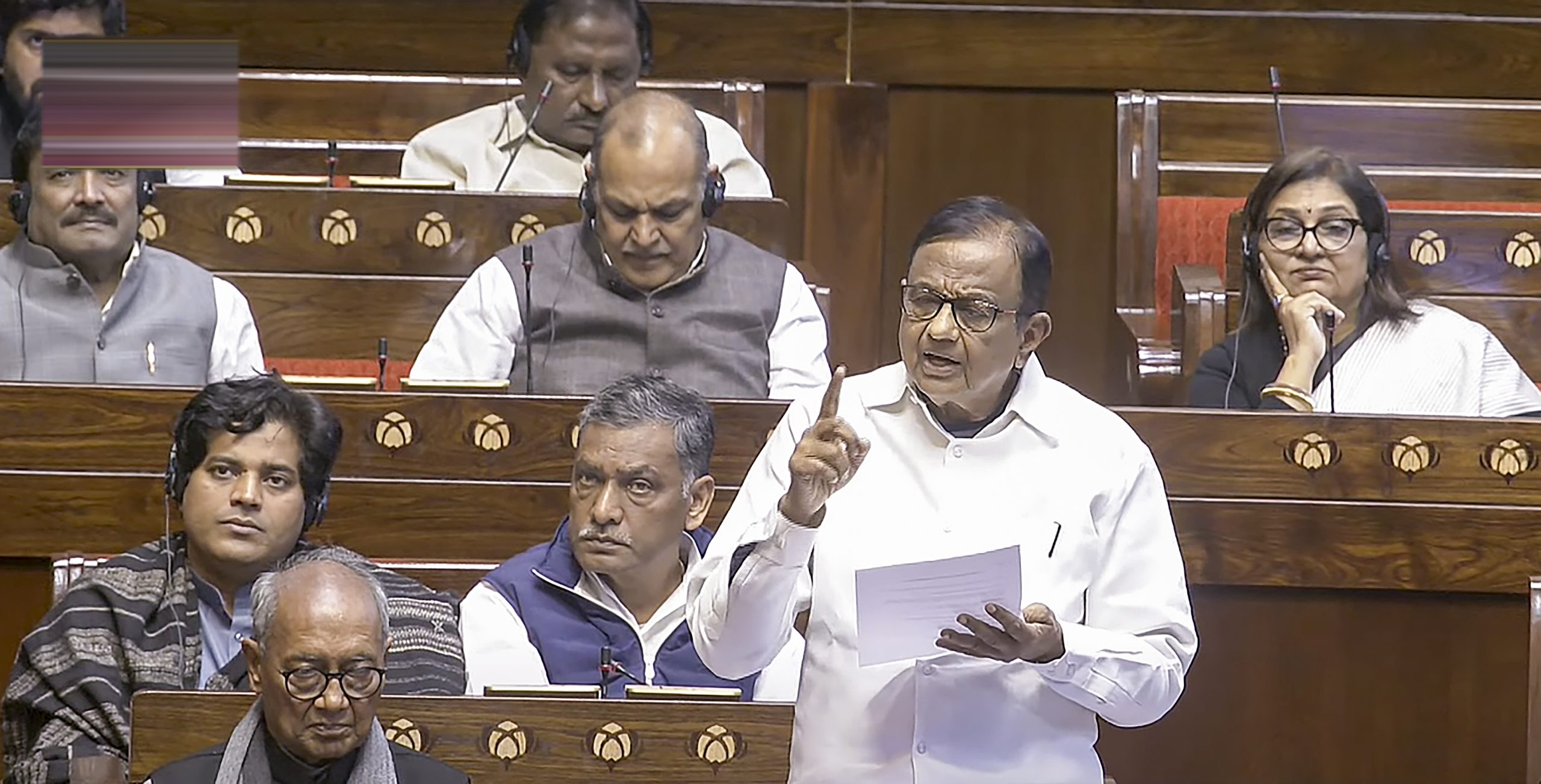New Delhi, Feb: Congress leader P. Chidambaram stated on Monday that the Union Budget 2025-26 is a “politically-motivated budget” designed with the upcoming Delhi elections in mind, neglecting the needs of the poor and lower-income population.
During a discussion on the Union Budget 2025-26 in Rajya Sabha, Chidambaram challenged Finance Minister Nirmala Sitharaman on how the fiscal deficit was improved by reducing the Centre’s capital expenditure and grants to states, labeling it as poor economic strategy.
“A budget should have an underlying philosophy, but I cannot discern one in this budget. I won’t pretend there is one because, after reviewing the Budget speech and the figures, I am convinced that no coherent philosophy exists,” he remarked.
Chidambaram continued, “It is clear that the budget was politically motivated, and while I won’t elaborate further, I acknowledge the finance minister for achieving one of her goals recently.” He referred to the BJP’s victory in the Delhi assembly elections.
The ex-finance minister also pointed out that the daily wage under MGNREGA could have been raised since those most in need are pursuing MGNREGA work. Similarly, he argued that the statutory minimum wage under the Minimum Wages Act could have been increased, benefiting countless laborers.
“She (Sitharaman) did nothing in this regard. Instead, her focus was on Income Tax and the Delhi elections,” Chidambaram asserted.
Regarding the Income Tax relief offered in the Budget, he questioned, “She acknowledged the middle class, but what about the segment of the population she has overlooked?” Citing government statistics, Chidambaram mentioned that in the 12 years from 2012 to 2024, food inflation averaged 6.18%, education inflation was 11%, and healthcare inflation reached 14%.
“These factors have severely impacted Indian households. Household savings have plummeted from 25.2% to 18.4%,” he added, noting that, according to the 2023 household consumption survey, the average monthly per capita expenditure for rural families stands at just Rs 4,226, while urban families average Rs 6,996.
“What has this budget accomplished for typical Indian households in the bottom 50% and the bottom 25%? Absolutely nothing. What assistance has the finance minister provided them?” Chidambaram queried.
He also revealed that the wage of a salaried male worker has decreased from Rs 12,665 per month to Rs 11,858 per month over the past seven years, while the income of a self-employed male worker has fallen from Rs 9,454 to Rs 8,591 per month.
“The reality is incomes are declining, wages are shrinking, government expenditures are failing to meet commitments, and household net savings are diminishing. Household debt is rising. This is the situation for the bottom 50% of India. There’s nothing in this Budget for them,” Chidambaram emphasized.
He stressed that the Rajya Sabha cannot be split into half advocating for the top 50% versus the bottom 50%. “I am glad to advocate for the bottom 50%, but I urge the treasury benches to ensure their minister advocates for them as well.” He pointed out that increasing the income tax threshold from Rs 7 lakh to Rs 12 lakh benefits “all taxpayers, including the highest earners,” adding that around 8-8.5 million taxpayers will be removed from the tax net, with 2.5 crore benefiting based on CBDT data.
“This 2.5 crore not only encompasses the middle class but also includes 2.27 lakh individuals reporting incomes over Rs 1 crore; 262 individuals with total incomes exceeding Rs 100 crore; and 23 individuals reporting total incomes beyond Rs 500 crore,” he noted.
Thus, Chidambaram concluded, “This does not only benefit the middle class—though that is welcome—but also the wealthiest individuals.” He questioned how, after forgoing Rs 1 lakh crore in this budget, the finance minister claims that net tax revenues for the Centre will increase by 11%.
“This is pure sleight of hand, not arithmetic,” he asserted, mentioning that the Rs 1 lakh crore would not be exclusively spent on domestic goods and services but also on repaying existing household debts, traveling abroad, and education.
The senior Congress leader accused the government of various schemes, including PLI and Make in India, of being “spectacular” failures, as they have failed to meet targets and create jobs.
He noted that “the most serious issue facing the country now is unemployment.”
Chidambaram also charged the finance minister with cutting capital expenditure to enhance the fiscal deficit from a target of 4.9% to 4.8%.
“But how did she attain this 4.8%? By slashing the central government’s capital expenditure by Rs 92,682 crore—not revenue expenditure. Additionally, she cut grants to states for creating capital assets, another form of capital expenditure, by Rs 90.887 crore,” he stated.
He added, “Therefore, the total cut in capital expenditure by the Centre and the states this year will amount to Rs 1,83,569 crore. By reducing capital expenditure by such a significant sum, she saved Rs 43,785 crore on the fiscal deficit.” He said that such a drastic cut could only be justified if the fiscal deficit saving was comparably large.
“But after cutting over Rs 1,83,000 crore, saving about Rs 44,000 crore—is that good policy? I don’t know. Is it good economics? I firmly say no. It isn’t good economics,” Chidambaram concluded. (Agencies)


Leave a Reply